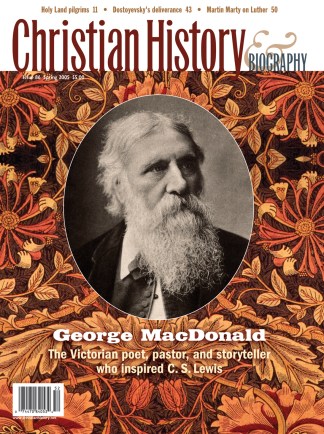In today’s public-school classrooms, boys and girls learn together with others of their age and ability. They are given pictures and hands-on materials to connect abstract concepts with the observable world around them. Their teachers address them as whole people-not just brains for the memorization and regurgitation of facts.
But elementary education did not always look like this. Schoolchildren of today, though they do not know it, owe a tremendous debt of gratitude to Jan Amos Comenius (1592-1670), a Moravian bishop often called “the Father of Modern Education.”
A brilliant young man whose own experience of elementary schooling was anything but happy, Comenius called the schools his age had inherited from the medieval period “slaughterhouses of the mind.” He was appalled by their oppressive strictness, their stress on abstract concepts unrooted in sense or experience, and their indifference to the moral and spiritual development of their young charges. And he set out to do something about it.
Sensitive to the developmental needs of children of various ages, Comenius divided elementary schools by grades. Believing that children must be wooed rather than coerced into learning, he invented the illustrated textbook and made experience and discovery part of the classroom environment. He taught that corporal punishment, if used at all, should be connected only with moral and not intellectual faults. He insisted that girls were as fully capable of learning at the highest levels as boys. And he preached that schools should teach all realms of knowledge, including morals and piety. The Moravian’s reforms were both praised and implemented all across Europe, with over half of European schools eventually using his textbooks.
But behind these reforms lay a deeper vision. Comenius belonged to the Unity of the Brethren-a group of Pietist Christians descended from followers of the proto-Reformer Jan Hus. This small group of Czech believers had been persecuted and exiled from their mother country since early in the bloody religious conflicts of the Thirty Years’ War. It was this background that birthed a vision in Comenius for a Christ-centered, universal education called “Pansophism.” He believed that a broad-based educational program bringing together people of diverse backgrounds in a common understanding could help avert further strife.
Comenius was no naïve visionary. He knew the foolishness and futility of the world and expressed it poignantly in his rich allegory, The Labyrinth of the World and the Paradise of the Heart. But he believed that education, though not in itself redemptive, could complement the gospel by fostering international restoration, unity, and peace. People have long understood that one potential benefit of a liberal education is the tolerance and generosity of spirit it can instill in its students. Rising above Europe’s fractiousness, Comenius taught a strongly Christ-centered version of this old ideal.
Today, focused as we are on schooling ourselves toward technical mastery and economic ends, we could stand to learn this other, deeper lesson from Comenius. In fact, today’s European Union has been doing just that. “Socrates,” a government-supported, Europe-wide education initiative, has named its elementary-level program “Comenius.” The program promotes the same values that drove its namesake’s reforms of the 1600s: pedagogical innovation, transnational cooperation, and equal opportunity for all students (see http://europa.eu.int/comm/education/socrates/). May it recognize Comenius’s Lord as well.
Copyright © 2005 by the author or Christianity Today/Christian History & Biography magazine.Click here for reprint information on Christian History & Biography.










